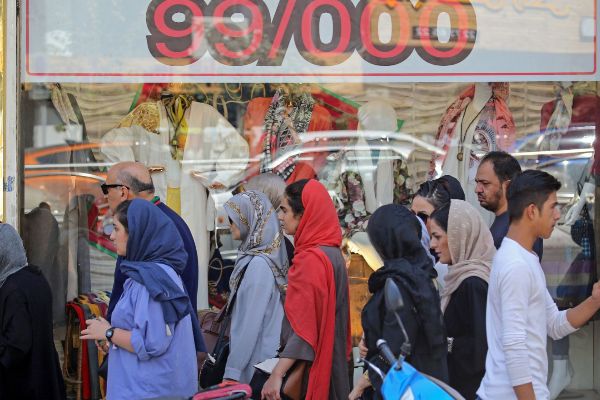- Middle East: United Arab Emirates, the next target in attacks against oil facilities
- Crises in the Middle East. What is left for the US to sanction in Iran?
Donald Trump has responded to the attack on Saudi oil complexes by sanctioning its main financial organizations. Starting this Friday, interacting with the Iranian Central Bank or the National Development Fund will mean being subject to penalties by the United States. The assets in the US of these institutions, as well as those of the financial transaction company Etemad Tejarate Pars, will be seized, in a new twist that raises the tension.
"Iran's blatant attack on Saudi Arabia is unacceptable. Treasury action points to a crucial financing mechanism that the Iranian regime uses to support its terrorist network, including the Quds Force, Hezbollah and other groups that spread terror and destabilize the region, "said US Treasury Secretary Steven T. Mnuchin, in a statement. " We warn governments that they risk the integrity of their financial systems if they continue to work with the financial terrorism arm of the Iranian regime, their Central Bank," reads the text.
The decision to strike crucial organisms for the proper functioning of any country's economy can further undermine the precarious domestic situation. The Iranian economy has been seriously damaged after more than a year of wild sanctions. Although the local currency seems to overcome the drastic initial devaluation, inflation and the reduction of foreign trade have contributed to the impoverishment of the population, the shortage of medicines and the increase in unemployment.
The last round of sanctions can undermine the lukewarm efforts of the EU to maintain a system of exchange of goods that allows to maintain some trade with Iran. This mechanism, called INSTEX, is one of the EU's attempts to prevent the nuclear agreement from completely wrecking. For most observers, Trump's withdrawal from the nuclear agreement, in 2018, began the escalation of tension that, at present, has put the region on the brink of armed conflict.
One of the key institutions that will now be punished is the Development Fund. It was established in 2011, with estimated reserves of 91 billion dollars in assets from the sale of hydrocarbons, as an economic cushion. Washington denounces that the Iranian government has withdrawn "hundreds of millions of dollars" from this fund in recent years to finance operations of the Revolutionary Guard, an army wing designated "terrorist group" by the US last April.
The Revolutionary Guard Corps operates, through its Quds foreign operations wing, in scenarios such as Syria, Iraq and, it is believed, Yemen , defending Iran's interests as opposed to those of the United States and its allies. One of the forces with which it cooperates is the armed arm of the Lebanese Shia party Hizbullah, also "terrorist" according to the White House. Iranians and Lebanese have been an important support for Syrian President Bashar Asad not being expelled from power in the Syrian war.
The US links Iran with the Houthi movement in Yemen, which controls the country's capital. It was the Houthis who claimed the double attack against Saudi oil facilities a week ago. An action that caused a sudden rise in the price of crude oil and which, according to Riyadh, had Tehran as a "sponsor." The Iranian Foreign Minister, who rejected any accusation of authorship , has warned that responding by attacking his territory would be a "total war."
But, for the Iranians, "economic warfare" is also the sanctions , and in this context they have responded in recent months, renouncing commitments to the atomic pact or raising pressure in waters of the Strait of Hormuz. That is why Donald Trump's last decision, despite not being a military attack, continues in his declared strategy of "total pressure" on Iran and, therefore, does not contribute to lowering the tension. The next few days in New York, where the UN General Assembly will take place, may be decisive for the future of the region in the short term. Some of the protagonists of the crisis will share aisle and, perhaps, some coffee.
According to the criteria of The Trust Project
Know more- Iran
- Yemen
- U.S
- Donald Trump
- Saudi Arabia
Attacks in Saudi Arabia Trump says he doesn't want a war with Iran but warns that the US is "better prepared"
Crisis in the Middle East What does the US have left to sanction in Iran?
United States Trump says the US is "charged and ready" to respond to the attack in Saudi Arabia

